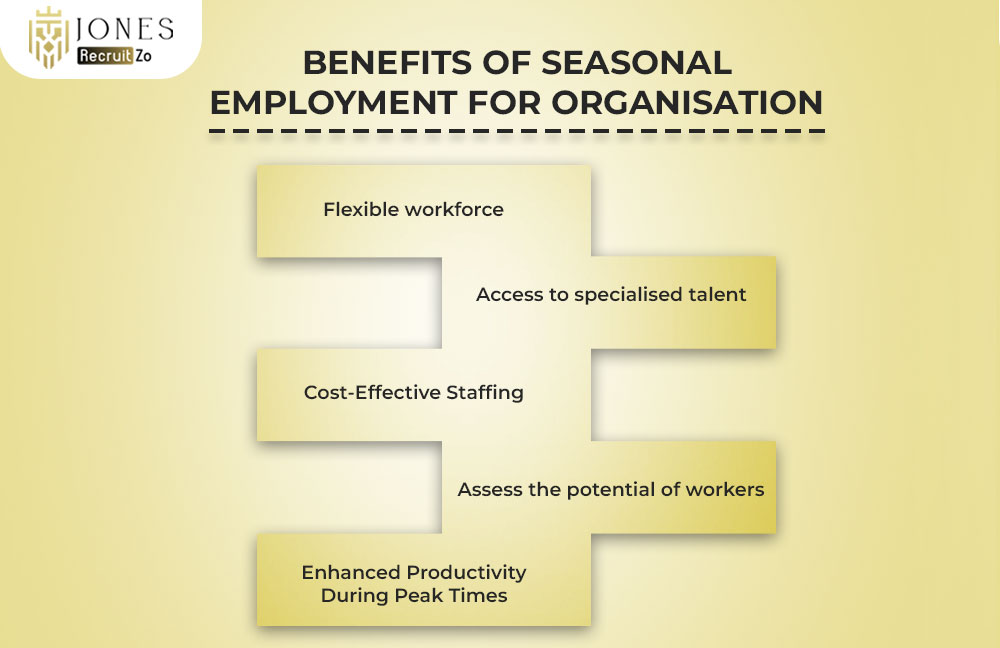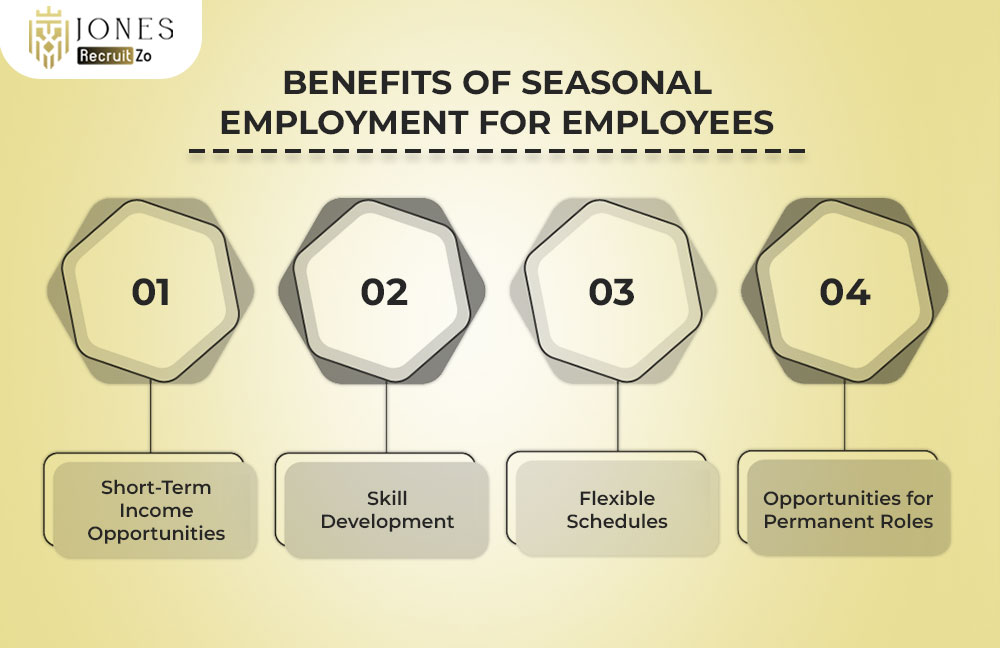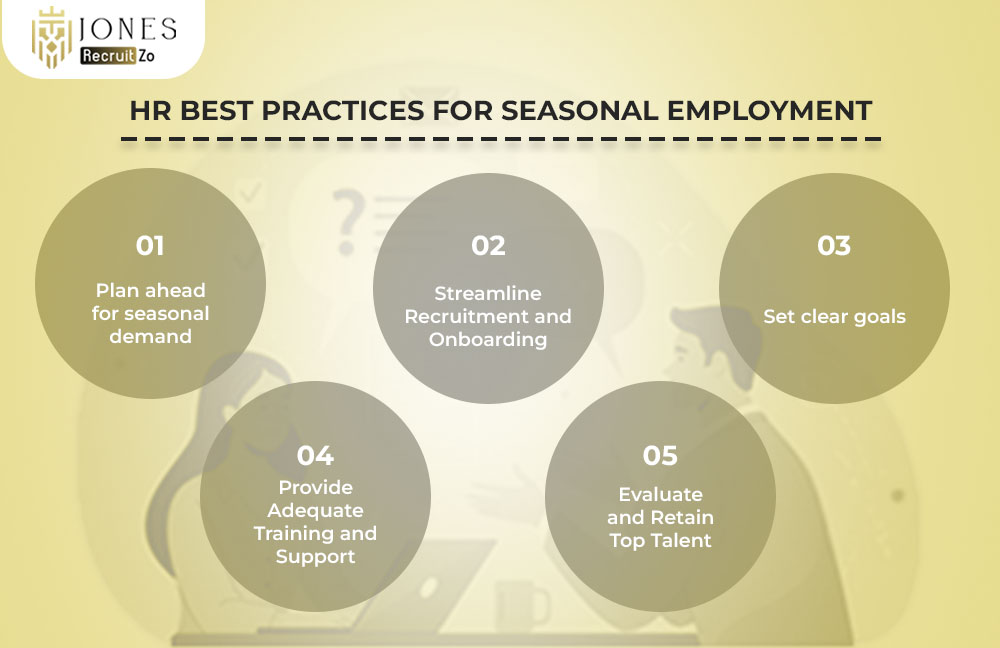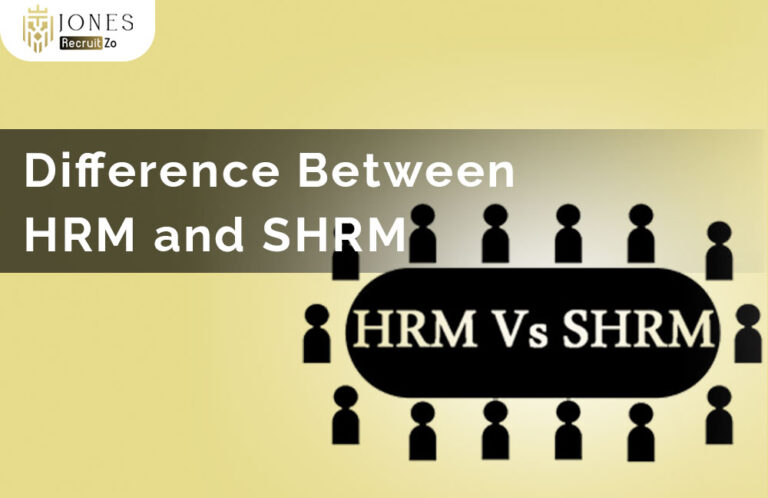What is Seasonal Employment?
Seasonal employment refers to jobs that become available during certain times of the year as a result of variations in business activity, consumer demand, or even just changes in the climate. Their temporary nature makes them exist mostly to help increase workloads during peak seasons—like festivals, holidays, harvesting, or peak tourism. General seasonal employment offers a practical staffing alternative for agriculture, retail, hospitality, logistics, and events industries. It allows employers to meet short-term requirements without having to hire under a long-term contract, while workers themselves are given much-needed opportunities to earn during the period.
What is the Duration of Seasonal Employment?
The length of seasonal jobs depends on the field and the demand at hand. Many times, seasonal jobs can last anywhere from a few weeks to several months. Agricultural workers, for example, might be brought in for planting or harvesting seasons, while retail workers might be called on around festive sales during Diwali or the year-end holiday season.
While there is no universal timeline, the key feature of seasonal employment is its temporary and cyclical nature—it starts and ends based on a predictable seasonal trend rather than the completion of a project.
Benefits of Seasonal Employment for an Organisation

Seasonal hiring offers multiple strategic advantages for companies, especially during high-demand periods. It helps optimise operations while controlling costs.
Flexible workforce
As per the seasonal roles, companies scale their workforce according to the demand level. Companies discharge additional staff during busy times and reduce headcount once that demand drops; hence, the disengagement happened without long-term obligations.
Access to specialised talent
Seasonal work is necessary for some industries to provide skilled manpower at certain times. Thus, it provides companies with the opportunity to have special professionals come to their aid for a limited, urgent period – the event managers for their big festival or their language experts for foreign tourists.
Cost-Effective Staffing
This can be cost-effective since seasonal workers are hired for a limited period of time; thus, organisations avoid long-term salary commitments and benefits. Budget-wise, this method allows for planning without losing out on potential productivity during the crucial period.
Assess the potential of workers
Seasonal employment may also act as an extended test of the work. Employers observe the performance in real-time and may possibly put forward evaluations of merit on long-term contracts for individuals who performed well.
Enhanced Productivity During Peak Times
Extra workers are required when demand is high to ensure smooth operations and better delivery of services. Full-time staff cannot keep operating under pressure and are thus being rendered unproductive.
Benefits of Seasonal Employment for Employees

Seasonal roles can be valuable opportunities for many individuals, particularly those looking for short-term income, skill-building, or entry into a new industry.
Short-Term Income Opportunities
These jobs supply a source of income for a certain period. It comes in handy for any student, part-time worker, or someone between permanent jobs who wants to earn money but does not want to commit long-term.
Skill Development
Seasonal jobs provide a glimpse into a real-world working environment. It is customer relations; it is teamwork or even technical skills; employees will live the experience, hopefully enhancing their employability.
Flexible Schedules
Many seasonal roles offer flexibility in working hours, which can be ideal for those balancing studies, family, or other obligations. This autonomy often attracts a wide variety of job seekers.
Opportunities for Permanent Roles
A seasonal job can serve as a foot in the door. Performing well during the season may lead to full-time offers or inclusion in a company’s preferred talent pool for future openings.
Difference Between Seasonal and Other Employment
Seasonal employment often gets confused with other types of temporary or informal work. Understanding how it compares to other employment types helps clarify its unique value.
Seasonal vs Disguised Employment
Seasonal employment is transparent and time-oriented, with the date of termination attached firmly to the demands of the season. A disguised employment situation would be when an underemployed person is, for the sake of staying employed, subjected to work incompatible with his/her ability or qualification. Unlike seasonal jobs, disguised employment is not concerned with cyclic demand but with the inefficiency or non-availability of meaningful work.
Seasonal vs Permanent Employment
Permanent employment is a continuous relationship with no termination typed in heavy ink, mostly offering insurance, paid leaves, and long-term growth opportunities. The limitations of seasonal employment on the dated period make it not provide for continuity beyond the end of the season, save only if otherwise.
Seasonal vs Temporary employment
Temporary and seasonal, while definitely not permanent, temporary employment is one that fills the position brought forth by a short-term unavailability, such as maternity cover, a project-related job, or an unexpected urgent hiring requirement that is not season-related. Seasonal employment, however, happens regularly on a seasonal basis and sustains industries that are faced with a seasonal basis.
HR Best Practices for Seasonal Employment

To make seasonal hiring successful, HR professionals must approach it with the same level of planning and precision as permanent recruitment.
Plan ahead for seasonal demand
Forecasting needs to be well before seasonal activities leave enough time for recruitment, onboarding, and training. Early planning may even grant access to better candidate pools before demand peaks.
Streamline Recruitment and Onboarding
Keep your recruitment process for seasonal employees simple, with standardised job descriptions, fast tests, and shortlisting tools. A structured onboarding ensures the seasonal staff get to work in the fastest time possible under a limited timeframe.
Set clear goals
Seasonal employees must know precisely what is expected of them. Setting performance goals early on with a clear outline of responsibilities enhances their focus and takes accountability throughout the contract.
Provide Adequate Training and Support
Every hire must receive adequate training, even temporary ones. Providing guidance, tools, and support enables them to work productively and uphold workplace standards.
Evaluate and Retain Top Talent
Keep a watchful eye on performance throughout the season and build a record of standouts. Extending offers for repeat seasonal contracts or even permanent roles to high performers helps you form a talent pool you can depend on in the times to come.
FAQs
1) What is seasonal employment?
Seasonal employment refers to jobs that are filled during certain times of the year, depending on the recurrence of business needs. These jobs occur in such industries as agriculture, retail, hospitality, and logistics.
2) How long is seasonal employment?
The duration is subject to the fiscal and commercial concerns of a given industry and can range anywhere from a couple of weeks to several months. It follows that seasonal jobs are generally associated with peak business cycles occurring during festive seasons, harvest times, or tourist influxes.
3) What is the difference between seasonal and disguised employment?
Seasonal employment is generated by predictable, temporary demand and ends after a certain period. Disguised employment, meanwhile, refers to underemployment due to a worker’s capacity being underutilised, typically because willing work is unavailable and not for seasonal reasons.
4) What are the benefits of seasonal employment?
For organisations, seasonal employment offers flexibility, is cost-effective, and allows access to skilled talent, while for employees, it presents opportunities to earn money, gain experience, build their skill set, and perhaps even find permanent employment.















